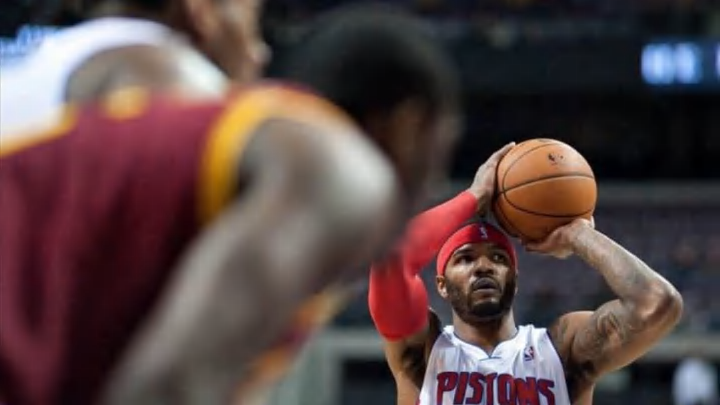
The Detroit Pistons aren’t having the type of season they had hoped for. After eight straight seasons in the playoffs, including six consecutive trips to at least the conference finals, a city that had grown used to success got a jolt from reality. Since 2009, the Pistons franchise have experienced as barren a spell as almost any NBA franchise, but the 2013 free agency period offered up the hope that things might be set to turn around. Josh Smith and Brandon Jennings signed on as guys who were hungry having spent their careers to date on the periphery of All-Star status, while Greg Monroe and Andre Drummond were already in place as the talented frontcourt of the future. With the further addition of veteran, and Pistons legend, Chauncey Billups, the future in Detroit appeared rosy. Now in March, with the team in the ninth spot in a weak Eastern Conference and three games back of the playoffs, the question is where did it all go wrong?
Whatever Pistons owner Tom Gores thinks is the answer to that question, he made former head coach Maurice Cheeks take the fall for it. In reality though, much of the blame should be lying at the feet of the players and the construction of the team. The Pistons are currently ranked 23rd in defensive rating and 21st in offensive rating, clearly establishing them as a third tier NBA team. Sure, coaching has a massive impact on the effectiveness of a team on both ends of the floor, but there comes a point when the players need to be held accountable.

Let’s take a look at the Pistons highly skilled frontcourt to begin with. Andre Drummond, Greg Monroe and Josh Smith have the potential to be one of the most explosive and physically imposing front threes in the league, on both ends of the floor. It just isn’t gelling, though. In the categories where they should be leading the league, Detroit are solid rather than spectacular. Individually those three players are excellent rebounders, yet collectively they can’t propel their team to higher than the league’s ninth best team on the boards. In terms of blocks, although Drummond and Smith are up among the best in that category ability-wise, there’s a similar story with Detroit ranked 10th.
Many analysts have pinned the Pistons struggles this season on the poor fit of Josh Smith in their system and they might be right. With Monroe and Drummond occupying the 4 and 5 spots, Smith is forced to play on the wing. Although this gives him the opportunity to back down smaller men and dominate in the post, it also requires him to shoot the 3 ball to space the floor, which is Smith’s Achilles heel. Smith’s numbers on the defensive end aren’t showing any signs of him being a good fit either. For his career, Smith has averaged a defensive rating of 103.4, whereas, so far this season he’s tracking at 105.6, which would be his worst defensive output since his sophomore season. The inability to get the best out of Josh Smith and many of his fellow teammates is a serious issue for Detroit, but it’s not even their biggest problem.
The Pistons squander points on a nightly basis. In spite of the fact that they average 100.9 points per game, it could be much better for Detroit. The Pistons rank 29th in the league in 3-point percentage and are dead last in 30th for free throw percentage. What sort of impact does this have from game to game though? Let’s take a look at the potential difference there would be if the Pistons could achieve league averages in these categories. Detroit averages a dismal 31.2 percent from downtown, a full 6 percent below the league average, while from the stripe the Pistons shoot 66.8 percent, versus the average of 75.4 percent. If the Pistons elevated their percentages to the league averages, based on the same amount of attempts they are currently taking, they would score 5.5 points more per game.

More than that, in no way is it scientific, but by adding 5.5 points to the Pistons tally in all 60 of their games to date, their season takes on an entirely different complexion. The Pistons currently have a record of 24-36, which is good for the ninth spot in the conference, but adjusted for those averages, they would be projected at 32-28, placing them as the fifth seed.
As much as there are big issues with Detroit’s defensive and offensive schemes and as important as it is for them to become more cohesive as a group, they need to make their priority working on some fundamentals going forward. If Smith, Drummond and the rest of your team are considered poor free throw shooters, you’re going to be fouled all of the time. If the team isn’t capable of draining open 3s, the opposition is going to crowd the inside. If they can put the work into these two simple aspects of their offense though, they’re bound to reap the rewards in the standings.
